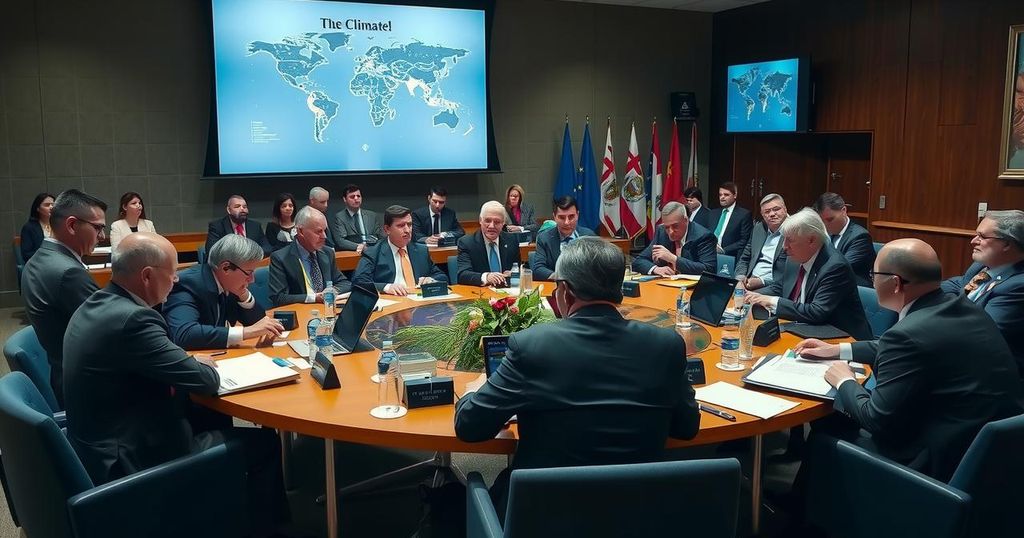The COP29 climate talks in Baku extended into overtime due to a lack of agreement on financial commitments for climate action, with a draft proposing $250 billion annually by 2035 falling short of the $1 trillion needed. Developing nations are seeking $1.3 trillion for adaptation to climate effects, prompting frustration and protests from activists and advocates who claim that developed countries must fulfill their obligations responsibly.
The 29th UN climate talks (COP29) held in Baku extended beyond their scheduled conclusion, revealing an atmosphere heavy with frustration and discontent among delegates regarding climate financing commitments. A proposed draft agreement suggested an annual funding of $250 billion by 2035, which significantly surpasses the previous target of $100 billion established 15 years earlier; however, it remains substantially below the estimated $1 trillion required annually to combat climate change effectively. Negotiators from the EU, US, and other regions engaged in intensive discussions, yet no conclusive agreement was reached before the venue began to be dismantled.
Developing nations, grappling with the severe impacts of climate change, sought $1.3 trillion for adaptation measures and transitioning to renewable energy, with many expressing that the current commitments were insufficient. This disparity has led to calls for developed countries to fulfill their financial obligations based on previous accords made in Paris in 2015. Some representatives from wealthier nations indicated that given their own economic challenges, the proposed figures were realistic, highlighting the complexity of global climate negotiations where debts often overshadow immediate funding needs.
Responses from climate advocacy leaders have been stark, pointing to the ongoing failures of developed countries to provide adequate financial resources to those most affected by climate change. Activists staged silent protests, emphasizing their disappointment and the ongoing struggle for more substantial commitments. The sentiments expressed illustrate the profound impacts of insufficient funding and response mechanisms not only on communities facing climate threats but also on the broader goals of international climate agreements.
The article centers on the ongoing negotiations of the annual UN climate conference known as COP29, where nations convene to establish agreements aimed at addressing climate change. A crucial aspect of these talks involves financial commitments from developed countries to assist developing nations as they grapple with the consequences of climate change, exacerbated by historical emissions largely attributable to industrialized nations. The reported discussions detail the struggle to meet financial targets, reflecting the ongoing tension between economic limitations and the urgency of climate action.
In summary, the failure to reach substantial agreements at the COP29 climate talks signals a critical setback in the global response to climate change. Despite advancing discussions on increased funding commitments, they remain insufficient to meet the urgent needs of developing nations. Without substantial financing and accountability, the objectives set forth in international climate agreements face significant risks, leaving vulnerable populations to bear the brunt of climate change impacts.
Original Source: www.taipeitimes.com






